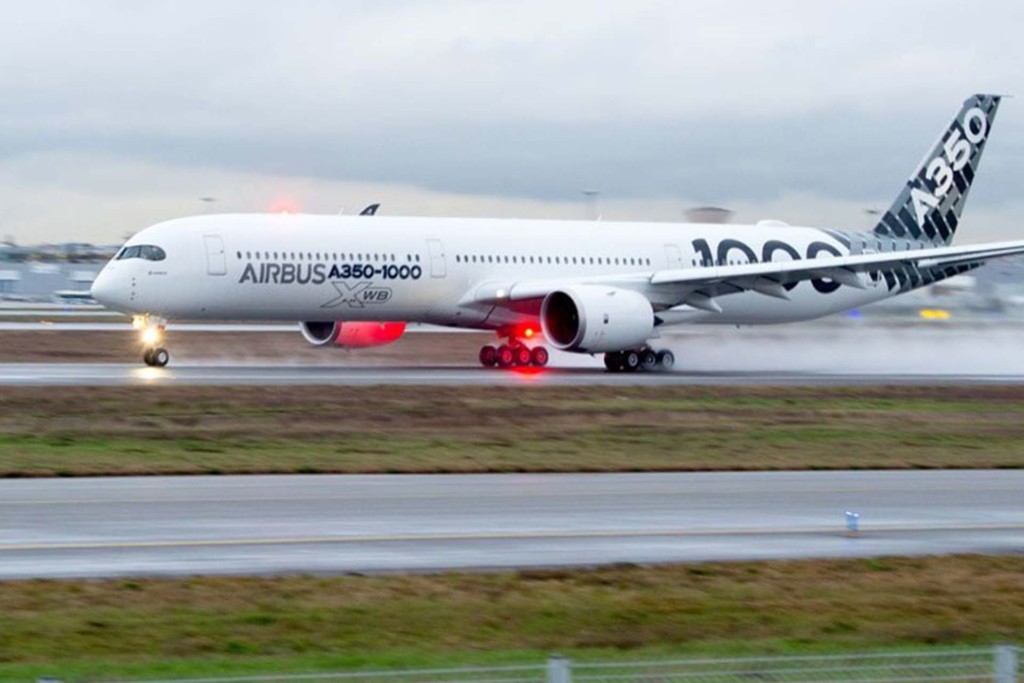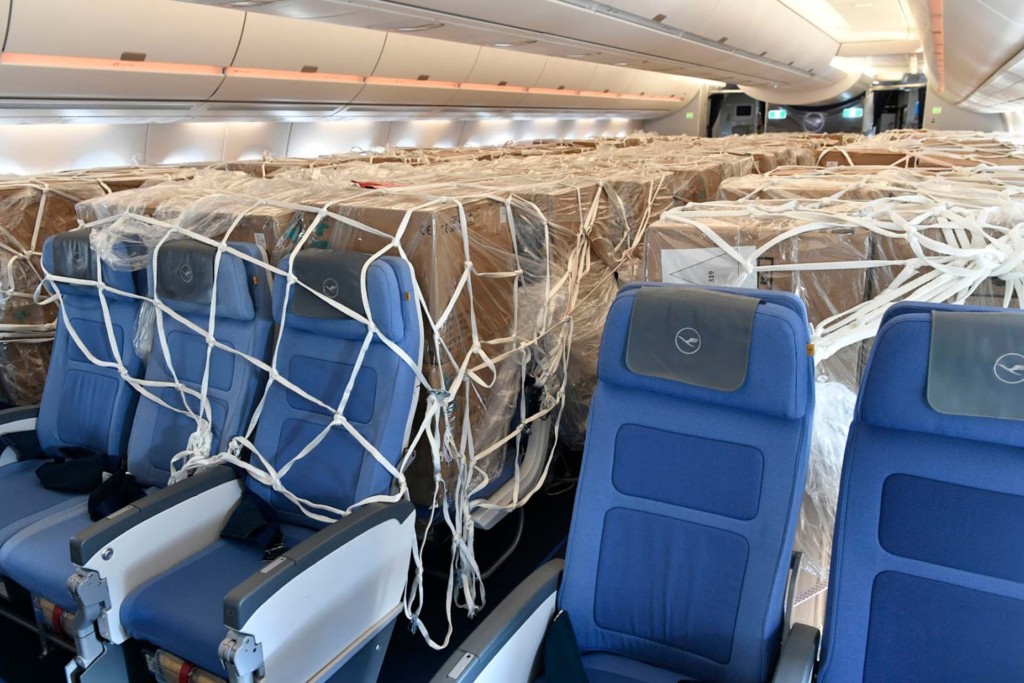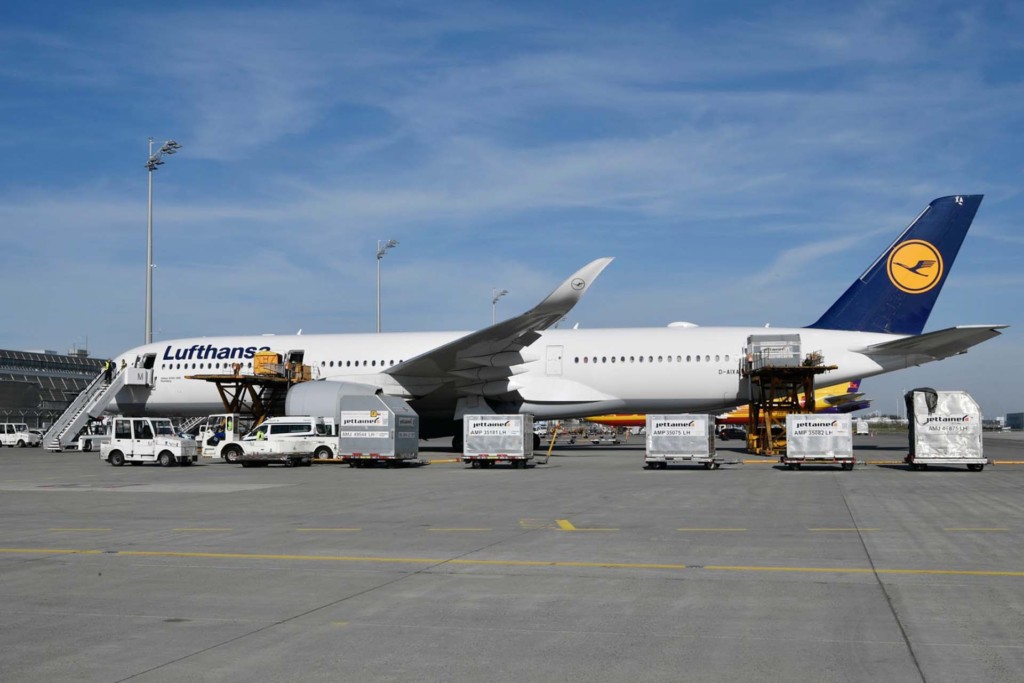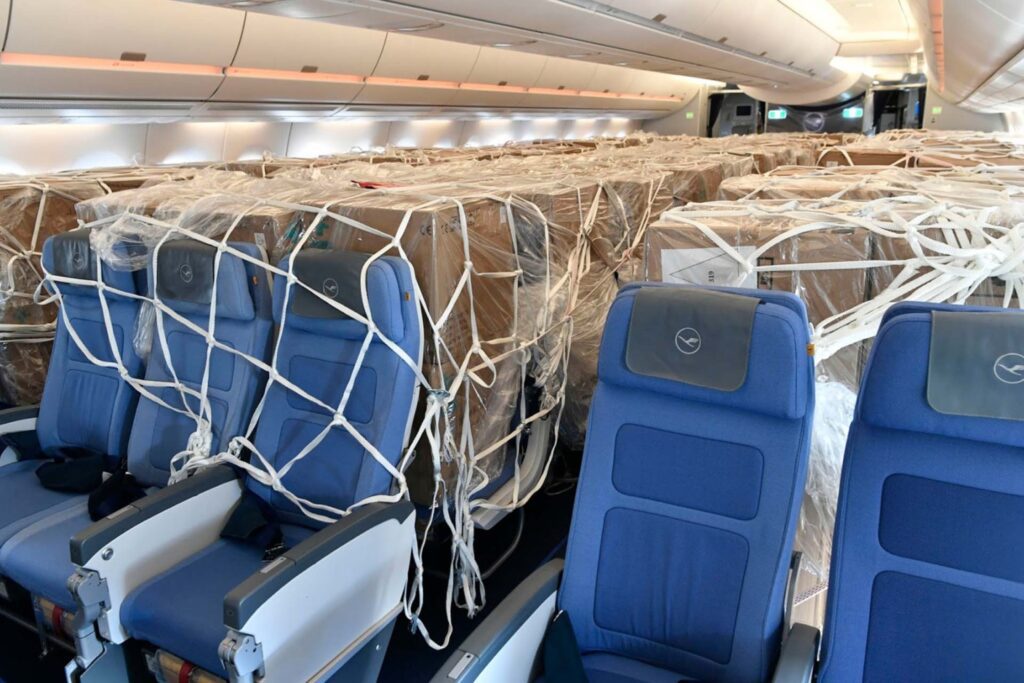Airbus A350 & A330 Can Now Be Converted For Pure Cargo Operations In 2 Days

Airbus has developed a solution for the modification of existing widebody aircraft for pure cargo operations.
According to Airbus, the manufacturer is offering this modification to its A350 and A330 widebody users by easily removing the passenger seats and installing freight pallets onto the cabin floor seat tracks directly.
This newly developed modification will allow passenger Airbus widebodies to be used as a freighter temporarily, minimizing the demand for air cargo during this coronavirus pandemic.
This conversion will help airlines to generate revenue, utilizing the currently grounded aircraft and also help minimize the global shortage of ‘belly-freight’ air cargo capacity due to grounding of long-haul aircraft.

Freight pallets will be installed by removing seats Photo: Airbus
This solution will also help the industry to address the increasing demand for humanitarian flights to transport a huge quantity of vital medical kits and other supplies to places where they are needed.
Some of the Airbus widebody operators are already using the A330 and A350 as a cargo mover, keeping the seats in place and simply loading cargo onto seats.
However, this new modification will facilitate easier and quicker loading and unloading along with less ‘wear & tear’ to the seats themselves.
The features like robust fire protection and the 9g load resistance capability of the aircraft will avoid anything from shifting on-board.

Currently, airlines are loading cargo on seats Photo: Lufthansa
As per reports, around 45-50% of air cargo had been carried in the belly of passenger jets normally rather than dedicated freighters.
The industry executives told Reuters:
“Airlines saddled with the cost of unused planes are looking to modify cabin interiors to adjust to the new reality. And that is providing a surprise windfall for aircraft maintenance companies deprived of normal trade of keeping passenger jets flying.”
According to Flightglobal, about 30 pallets can be accommodated on an A350, while 28 pallets can be carried on an A330.

The Airbus A350 can accommodate 30 pallets of cargo Photo: Lufthansa
Germany’s Lufthansa Technik, Canada’s Aviator, Hong Kong’s HAECO, and Belgium’s Akka Technologies are among the popular companies carrying similar conversions and adding nets.
Some 20 airlines are currently studying to carry freight on a temporary basis in A330 and A350 cabins.
Lufthansa Technik AG Jens Weinreich said, “We have great demand. We have received proposals from more than 40 airlines.” Lufthansa Technik has converted 18 cabins for various carriers and expects to modify 100 more.
Airbus test pilot and vice-president of flight operations support Yann Larget also said that Airbus would be prepared to look at A380 modification if customers requested it.

Airbus is ready to look at A380 modification as well
Photo: Image Source
Airbus has also said that the manufacturer is looking to take care of all the European Aviation Safety Agency (EASA) regulatory procedures.
Regarding the certification and approval to fly, Airbus said:
“The modification is packaged for operators as an Airbus Service Bulletin. Under this arrangement, Airbus defines the engineering work scope and also manages the process for obtaining the one-time certification from the EASA.”
Therefore, this modification will not add an extra burden for the airline, with operators only contributing the cost of labor for the modification.
To maintain safety as per EASA guidance, multiple systems will need to be deactivated on the aircraft, particularly those that generate heat.
The aircraft after modification must carry trained fire monitors along with pilots who must perform regular safety walks, carrying portable oxygen.






